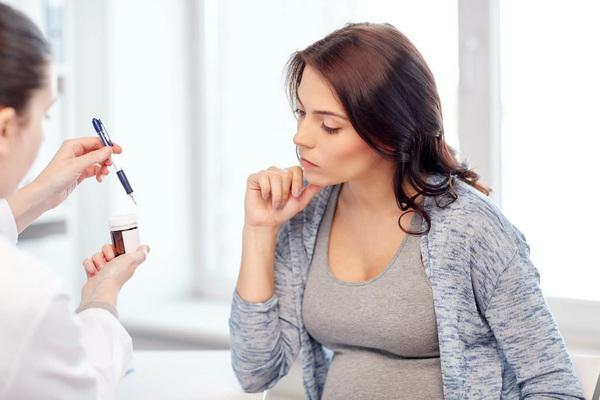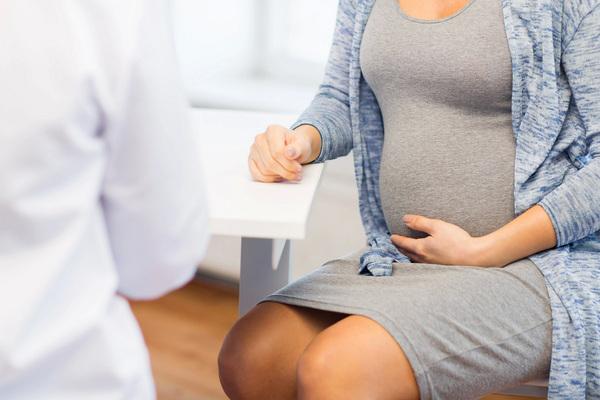Cystitis is not associated with a serious medical condition, but if left untreated, it can pose a threat to you and your baby developing in you. Recurrent ailments can interfere with normal functioning.
The growing uterus and its inhabitant press on the bladder, obstructing the movement of urine, creating ideal conditions for bacteria to multiply and to form a bacterial infection. The most common bacteria are Escherichia coli, Staphylococcus aureus, and Enterococcus aureus.
Cystitis during pregnancy – symptoms
Be sure to consult your gynecologist if you notice any of the following symptoms:
- Constant pressure on the bladder even after you have finished using the toilet.
- Burning sensation when urinating – sometimes just a few drops
- Sharp, stabbing pain in the vaginal area
- Cloudy urine with an unpleasant odor.
- Low fever
- Constant irritation and distraction from running to the toilet
Treatment of cystitis during pregnancy

The gynecologist will definitely recommend that you undergo basic tests to determine the treatment. It usually starts with cranberry pills. When this does not help, antibiotics are sometimes necessary. There are many antibiotics that are safe even in the first trimester of pregnancy.
If your gynecologist decides to undergo this treatment, there is nothing to worry about.
If you are taking antibiotics during pregnancy, be sure to include probiotics. It is recommended to eat yogurt with live cultures of bacteria and take antibiotics at the same time to prevent the depletion of intestinal flora. A probiotic tablet is also good.
- Urinary tract infections, including cystitis, are among the most common infections during pregnancy. This is due to adaptive changes occurring in the body of a pregnant woman, which contribute to colonization and penetration into the urinary tract.
- Since any urinary tract infection is dangerous for both the mother and the fetus, it requires treatment with antibiotics that are acceptable during pregnancy each time. Before starting antibiotic therapy, a bacteriological urine culture and possible correction of the current antibiotic therapy are required.
How to avoid cystitis during pregnancy?
Prevention is known to be better than cure, which is why below is a verified list of home remedies for cystitis in pregnancy.
1. Provide vitamin C.
The following works great in this role:
- Cranberry or black currant juice,
- Cranberry teas,
- Freshly squeezed citrus juices
- Water with lemon.
They acidify the urine and prevent bacteria from growing. Attention! Avoid dried cranberries. It is mostly just sugar. Yet, during pregnancy, we lack the factors that cause extra pounds.
2. First – drink water! Plenty of water!
A woman’s body needs much more water throughout her pregnancy. Your baby’s body, like yours, is mostly made of water, so it is important to always have it close at hand. This way you get rid of unwanted bacteria. Water helps to remove toxins and metabolic by-products from the body (now not only yours, but your child’s).
Drink at least 2 liters of fluid a day. Sounds complicated, especially if you rarely go to fetch water every day. Meanwhile, it does not have to be just water. Try the aforementioned vitamin C-rich drinks as well as colorful cocktails and soups. You will not even know when you cross this magic threshold of eight glasses a day.
3. Use the washroom often.
Use the washroom as often as you see fit. Do not hold back urine, even if it takes half a day to do so.
Attention! Important and unfortunately not very romantic: remember to empty your bladder before and after intercourse (and wash immediately after).
4. Observe good hygiene.
During the daily toilet, special attention is paid to the genital area. Pregnancy requires even more care when washing.
5. Replace the bathtub with a shower.
If you, like me, are a fan of long baths, this information will not please you. Warm baths promote the growth and movement of bacteria. In addition, sitting in the bath for a long time washes out the natural bacterial flora of the vagina, which causes irritation, which in turn increases the risk of cystitis.
6. Herbs, herbs, greens.
While no herbs can cure cystitis, they will certainly provide temporary relief. Short squats or rinsing your crotch with a decoction of chamomile will allow you to forget about the burning ailment for a moment when you spend the next night in the toilet, not in bed.
7. Take a deep breath.
Let the perineum breathe. Sleep without panties or pajama pants. Avoid tight pantyhose or pants during the day.
What if the infection returns
Unfortunately, sexual intercourse is a common cause of cystitis. In extreme cases, the only solution for recurrent infections is to completely stop intercourse during pregnancy. Do you like acrobatic exercises? – Best of all – they promote the spread of bacteria. This is due to the anatomy of the urethra, which differs between men and women. The urethra is shorter and wider in women than in men, which increases the likelihood of infections in women.








